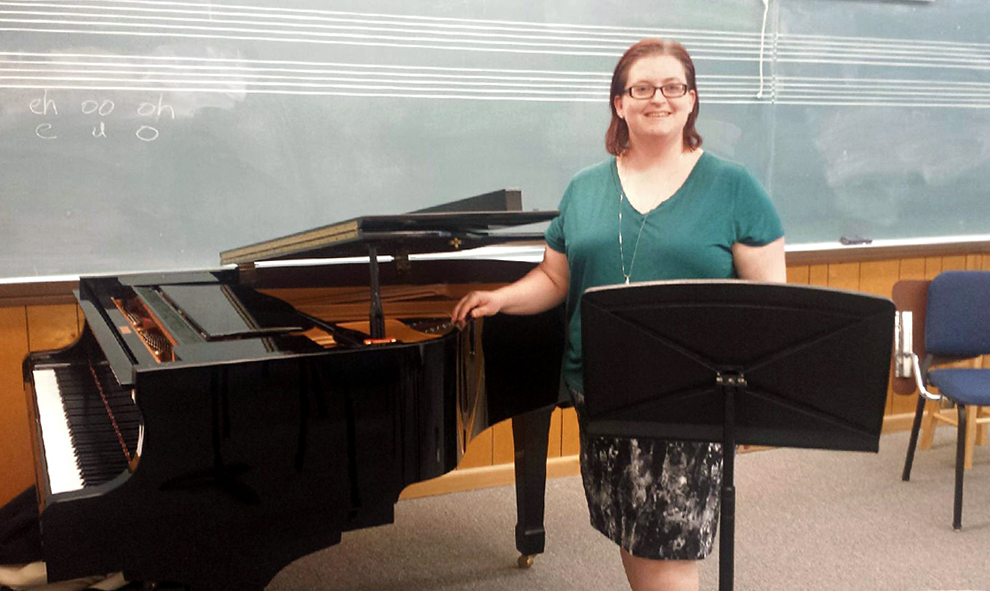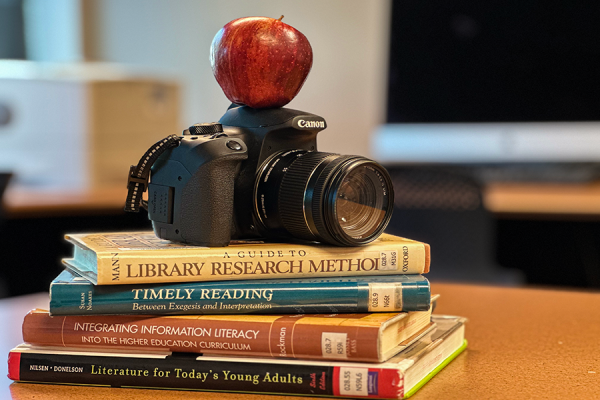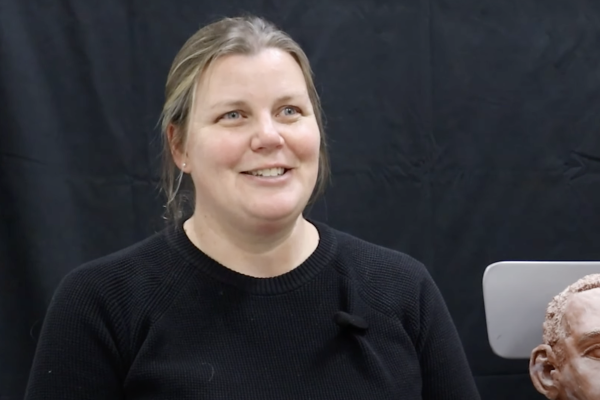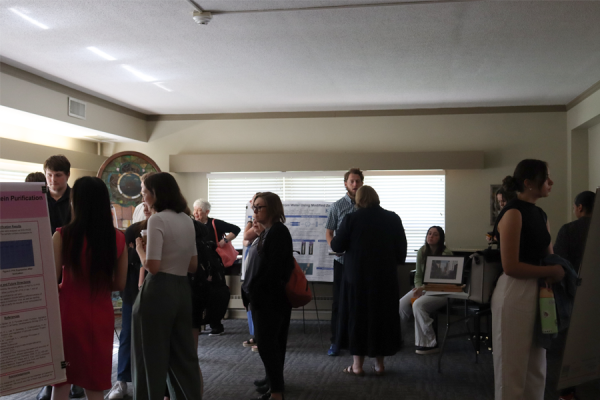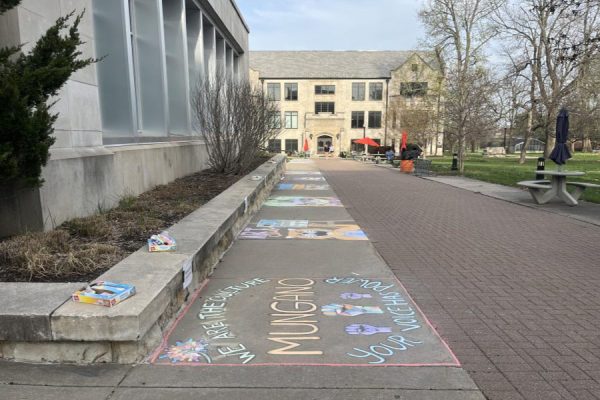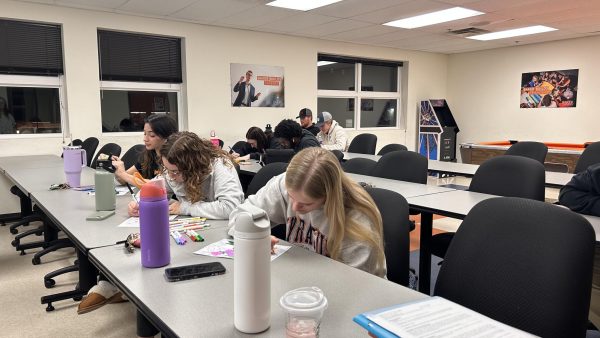Baker teaches older student newer lessons
The Baldwin City campus is made up of mostly traditional students stepping into the world of adulthood, but the few non-traditional students on campus have to fit into younger shoes.
Emily Elliott, a 33-year-old transfer sophomore and music education major, enjoys sharing campus with younger students, though there are moments when the age difference can be discouraging.
“I’m 10 years older or more than most of the students, so I’m frustrated sometimes. There are some students here that are more mature than others and this experience has made me appreciate those students,” Elliott said. “I understand that this is their time to experience college, but as a mother I feel I always want to mother-hen things and I have to remind myself that this is not my circus, and these are not my monkeys. The biggest struggle is when the class materials are directed toward a younger audience.”
Though being older comes with certain advantages, Elliott finds that balancing an adult life alongside her studies has proven quite the challenge.
Elliott decided to attend Baker to further the education she received at the University of Kansas. Like many students who take breaks from school, there were several factors that derailed her education experience.
“I started college in 2000 with the intention of finishing a four year degree to become a music education, vocal performance major with my master’s degree,” Elliott said. “Basically I wanted to be Cathy Crispino, the choir director here,” Elliott said.
But after troubles with finances and the death of a friend, Elliott took a break from education.
Coming to Baker after 13 years was a hard decision for Elliott. Making her way by teaching private voice and piano lessons and working with her church, Elliott knew she wanted more out of life and decided that as soon as her youngest child was in school, she would be too.
Now a single mother of two, she is forced to juggle her home life and school. As a person who commutes to and from campus, getting her kids to and from their classes and fulfilling campus requirements is challenging.
“I still have to go through a lot of the Quest pre-recs, which are tricky for transfer students, especially older transfer students, because there’s been a lot of repeated material,” Elliott said. “Also, by the time that all of the music events are over, it’s after 6 o’clock by the time I get home. Now, there are some troubles arising with my youngest who is now a child who needs special attention, which has complicated things more since I’m torn between spending time with him and focusing on studies.”
Staff Accompanist and Osborne Chapel Musician Nanette Kraus has known Elliott since before she was a student when she participated in the University Singers Community Choir with Elliott’s father. Kraus has worked with Elliott as her private vocal lesson and choral accompanist and even played for her music scholarship audition.
According to Kraus, Elliott is ambitious in getting back to her degree and is passionate about her vocal abilities as well as the desire to learn.
“She’s very teachable, even though she’s done some professional things outside of Baker like teaching privately or church music jobs, and I appreciate that she is open to learning new ways to do what she’s already been doing and improve her current skills,” Kraus said.
Kraus believes that Elliott’s age is an advantage in that she is more learned in managing her time and setting priorities.
“I think I see in her, and some of the other non-traditional or older students, a greater ability to see how their learning here can be applied in the outside world in their careers,” Kraus said.
Though she believes that Elliott has fit in well, she understands the difficulties that Elliott faces every day in adjusting to Baker requirements.
“I think we’re inviting to transfer students in some ways, though I think there are things we could be doing better, we don’t have a lot of older non-traditional students and this being a residential campus primarily, it’s really set up for the young, single person coming out of high school,” Kraus said. “I also think that some of our residential campus scheduling probably doesn’t work well for students who have a family and a job they have to maintain.”
Senior Aubrey Eicher is in Concert Choir with Elliott and the two have had several music courses together. Even though Elliott is older, Eicher still finds Elliott to be a friend and fellow student, just like any traditional student on campus.
“We’ve become friends,” Eicher said. “She’s always interesting to talk to and knows so much already because she’s got a few more years under the belt than I do. I know I can go and ask her questions and have an honest conversation.”
Eicher thinks the amount of experience Elliott has as an older student is invaluable compared to other students.
“From the classes I’ve had with her, I feel like her age is an advantage because she knows her voice so well and can use it confidently,” Eicher said. “She knows more than I do and is open to questions.”
Even though there are not many older non-traditional students on campus, Eicher thinks that Baker’s welcoming community is one of the things that makes Baker non-traditional friendly.
Going forward, Elliott hopes to finish her education at Baker and let her voice take her as far as she can go.


